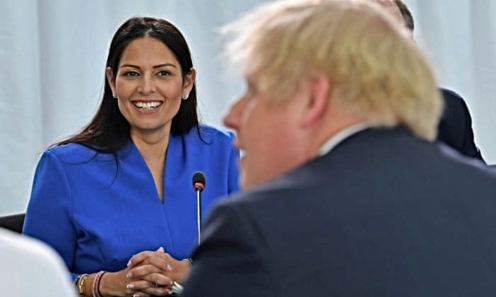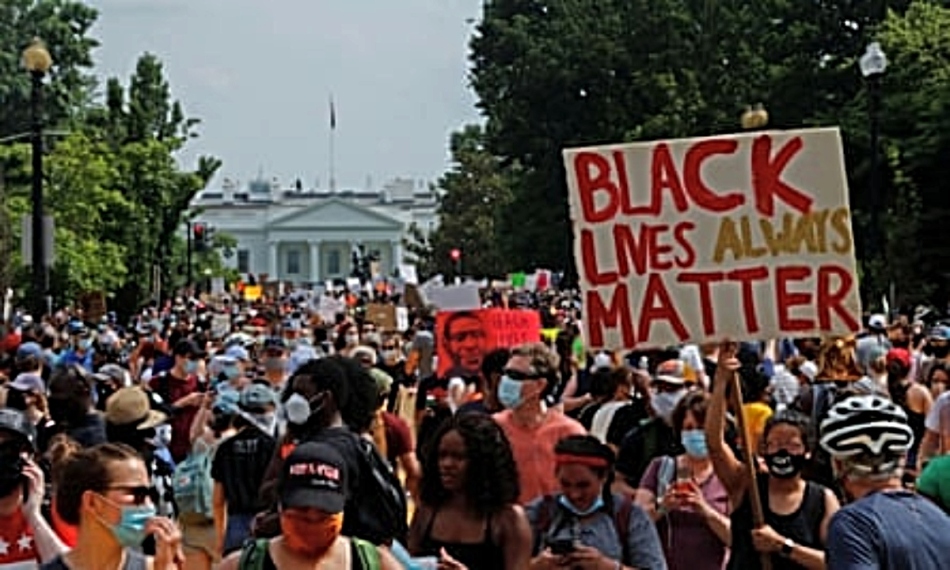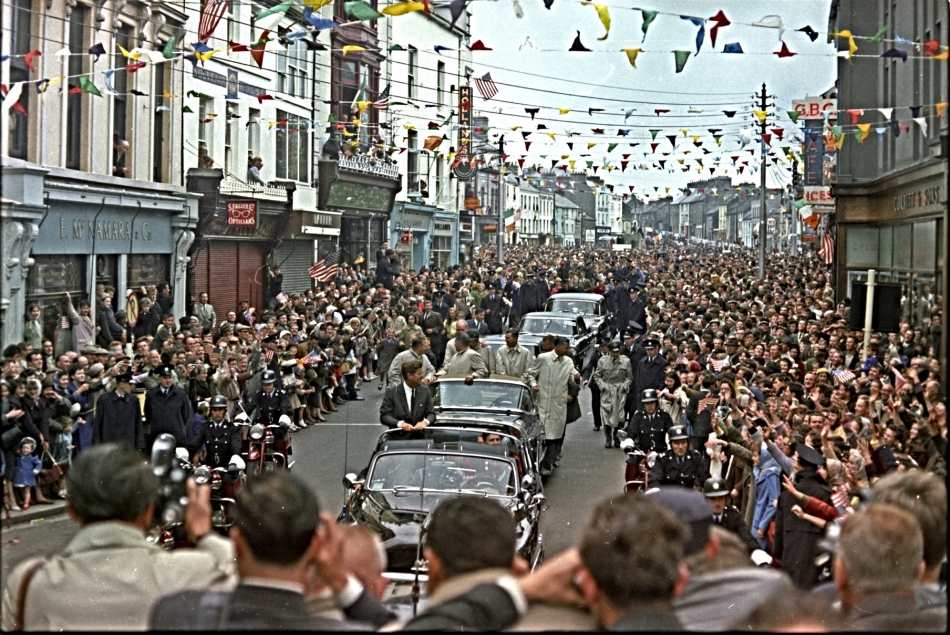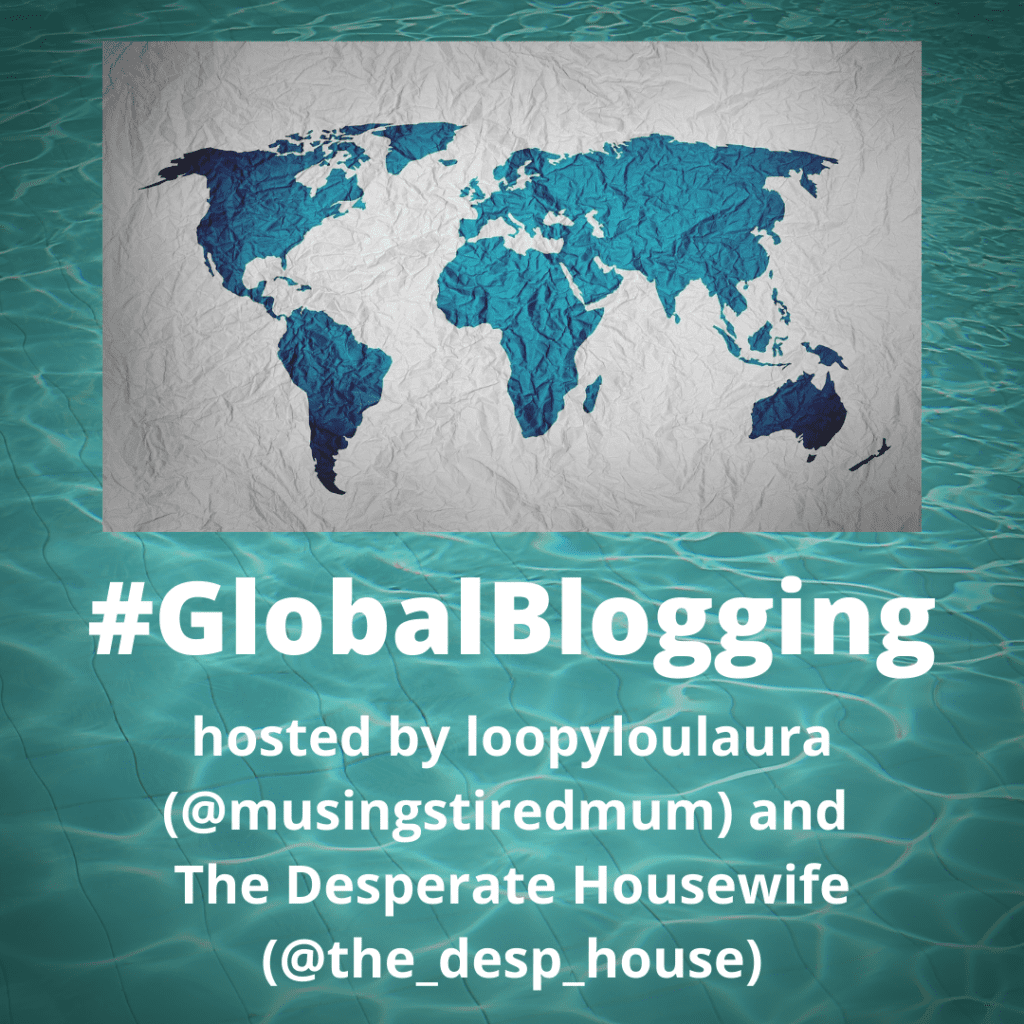Nothing is black and white these days — not even black and white.
I was thinking that just this morning when I read Gary Lineker’s twitter response to British Home Secretary Priti Patel’s denunciation of the toppling of a statue of slaver Edward Colston in Bristol, England.

Patel described it as “utterly disgraceful”, noting it “undermines’ anti-racism protests”.
Lineker retorted: “It’s utterly disgraceful that a statue to a slaver survived as long as it did”.
Before even considering the actual exchange, I was struck by the optics.

There’s Lineker, who we might describe here as the liberal voice in this exchange — I say exchange, but as I write, we have yet to hear her response, if any, to Lineker.
Lineker is white, was hugely successful as a soccer player, and is now equally successful as a soccer show host in Britain.
So white and wholesome, in fact, that despite playing as a striker for England, Barcelona, and others he was famously never even booked in something over 500 top-level matches.
So, you might deduce, a guy who thinks before he tweets.
Patel’s is the conservative — and Conservative — voice here.
She is the Honourable Conservative MP in Britain for Witham, a seat only created in 2010, and, according to Google, “one of the safest Conservative seats in the country”, taking in Braintree, Colchester, North Essex, and Maldon and East Chelmsford in Essex.
Quintessentially English places.
Google describes Witham’s electoral area as “covering a huge part of rural central Essex, with affluent commuter villages and farming communities that show high levels of Conservative support”.
And their MP is Britain’s first female Black, Asian and Minority Ethnic (BAME) cabinet minister.
Not who you might immediately expect to be representing such an area
Born in London to a Ugandan-Indian family, she studied Economics at Keele University, in Staffordshire, and British Government and Politics at the University of Essex (described as a public university, ie in state ownership or receiving significant public funding).
Her parents owned a chain of newsagents in London and south-east England, and Patel says she was inspired to get involved in politics by Conservative prime minister Margaret Thatcher!
That someone might be reading this in the months to come, the protests Patel was referring to were those that followed the brutal killing of a black man, George Floyd, in Minneapolis, USA, by a police officer.

His death was witnessed all over social media after it was captured on the phones of shocked witnesses.
Is that what Priti Patel has done? Joined the oppressive forces of conservatism, and white privilege, and outstripped most of them
The Black Lives Matter movement has long been in the news, but the recent events in America, fuelled by President Trump’s dangerous incitement of the forces of law and order to go hard on the protesters, have really exercised people.
As I write, my daughter is preparing her poster for a Black Lives Matter protest in our little village in north County Dublin.
Thinking about Patel, a noted Eurosceptic, and influential pro-Brexit force, I was thinking about how complex the whole race issue is.
And how difficult is it is to express any opinion on race matters without getting bogged down in opinion and counter-opinions, or lost in the complexity of the whole business.
You would think nothing could be simpler: racism is based on discriminating against other on the basis of skin colour. And so is patently wrong
Black Lives Matter.
White lives matter.
All lives matter.
Except of course, according to many, it’s easy for white man Lineker to say what he said, without considering his position of privilege to begin with.
I follow Lineker on twitter, and consider him an interesting, intelligent guy, and I am sure he would be aware of the irony of his position.
But you see where this can go pretty quickly: patronising white guy speaks from ivory tower about issues he has never had to face.
Issues Priti Patel, whatever you might say about her politics or her opinions now, would have been brought up facing.
And her family before her — her paternal grandparents were born in the state of Gujarat in India, before emigrating to Uganda, and establishing a shop in Kampala, before emigrating in the 1960s to the UK and settled in settling in Hertfordshire.
It’s like the old Woody Allen (another guy dangerous to even mention) joke: “My dad is a reformed Jew, a very reformed Jew: he’s a Nazi”
I know nothing about her beyond these few Googled “facts” and the various newspaper reports since her rise to prominence, but I can’t help thinking about that whole notion of identifying with the oppressor, or the famous Stockholm syndrome.
Without going too far off-topic, we would all be fairly familiar with said syndrome, as a psychological response in hostages or abuse victims, who bond with their captors or abusers.
It’s a survival mechanism, of course, but it can also become a way of life.
If you can’t beat them, join them.
Is that what Priti Patel has done?
Joined the oppressive forces of conservatism, and white privilege, and outstripped most of them.
It’s like the old Woody Allen (another guy dangerous to even mention) joke: “My dad is a reformed Jew, a very reformed Jew: he’s a Nazi”
I don’t know about Patel, really, of course, and I’m sure she would disagree with my thesis … but it’s interesting.
Some of us Irish have a worrying history in America, of identifying with oppressive, conservative, and even racist forces.
We are reared on the stories of the wretchedly poor famine victims arriving in America and England to be greeted by signs in windows saying “no blacks, no Irish”.
What were they to do?
Quick black and white history: the Irish abroad crawled out of the gutter with courage and resilience and within a few generations rose to the dizzy highs of Irish-American scion John F Kennedy being president of the USA.

No blood on the tracks.
It’s a bit more complicated than that, of course … things are never black and white.
For instance, we have to consider another fascinating syndrome, if you want to call it that. How the latest lower order wave of emigration would naturally look to those above them to give them a hand up, only to get the opposite reaction.
Kicked down by those who would prefer to aspire to be like the ones above them, pushing them down. Wanting a bit more of that privilege and prestige.
So, the recently up in the world guy actually steps harder on the necks of those below him, identifying with those above him on the chain of oppression and privilege.
You don’t think so? How else do we explain the significant Irish involvement in the Ku Klux Klan down the years?
And the scandal of our direct provision centres, whereby asylum seekers are given the most basic food and shelter while their claims for refugee status are being processed — which can take years, or even be rejected.
These have been in the news here recently following the outcry over the lack of social distancing space at the Cahersiveen facility in Co Kerry, and the number of Covid-19 positive cases resulting from this.
Now it’s easy to pontificate from my semi-d ivory tower in seaside Dublin, but I must also consider my own position on racism, and reflect on the distance between how far I think I have come, and how far I actually have.
I remember a few years back asking our then eight-year-old son, as an exercise, to describe a boy we know in our estate.
He was slightly older than our lad, but a lovely, friendly kid, he would often pop over for a game of X-Box stuff with our boy.
He was also a good footballer, which would also really appeal to our boy.
Well, said our O, “he’s really fast, he’s really funny … he’s …”
He never mentioned what was, to me, this kid’s most obvious trait: he is black!
Here’s something I am embarrassed to admit: unless they are stand-out different, I wouldn’t find it easy to distinguish between some black players, I mean ones with similar hair-dos and superficially similar characteristics.
But our guy, a keen player and observer of football, and brilliant at identifying players, finds it easy to distinguish between black players, and he is a brilliant resource for myself.
I’m talking about when we’re watching matches and guys are haring around the place, especially in long focus camera shots.
O knows these players by their running actions, physiques, the boots they were … all sorts of things beyond their skin colour.
Just like the many ways in which I would distinguish between white players, and white people.
Now I can try and excuse myself because so much has changed since I was a boy, in terms of all sorts of ethnic groups coming to Ireland to live and work, and be integrated into Irish life.
I went to an all-white, all-boys school, and, believe it or not, did not start meeting black people on a regular basis until I went to London for the summer as a 19-year-old!
So I am still a bit slow in the identification stakes, seeing the similarity first between blacks people before the differences that are so obviously there, when you know people, or see them more often,
I think it is so good that our kids have friends of different races, and don’t even think anything of it.
I love those cute social media memes of white and black kids hugging and sharing as much as the next lazy-thinking white guy, but I know things are a bit more complicated.
It’s not about not recognising difference, or acting like we are all the same, it’s more about clocking the differences, but being comfortable with them. More than that, they are not even relevant.
Still my favourite example of what I am trying to say is an anecdote from ER Braithwaite, author of the autobiographical novel, Too Sir, With Love, which included his experiences as a black schoolteacher in the East End of London in the 1950s.

In an interview I read years ago, the Guyanese-born Braithwaite described sitting in an airport waiting lounge in a Scandinavian country, and a little blonde, blue-eyed Nordic girl walked up to him, slowly, agog at this dark-skinned vision in front of her.
Braithwaite described how the girl looked him up and down, fascinated, before running to him, hugging him, and running back to her family.
For Braithwaite, the thing was this little girl recognised he was different, acknowledged that difference, but it was okay with her.
She literally embraced his difference. And him.
She was no longer a slave to prejudice and oppression
Or was he.
For that moment.
- Thanks for reading.
- Try another one
- Follow my blog, why don’t you!





Thanks, this was a good read. I ca really identify with what you’re saying as I would start identifying with the obvious, skin colour (and I would say I am totally free from racial bias) and my children would say, “The one in the red coat” or something like that. How the world has changed and I’m glad of that.
LikeLiked by 1 person
Hi Wic, I agree wholeheartedly that the world is changing, and our kids have taken up the baton of making it a better place.
LikeLike
An excellent read if ever there was one. I can certainly relate and I admire your honesty and the way you’ve put across such a delicate subject.
it’s interesting how age and our generational gaps affect our view of things.
LikeLiked by 1 person
Hi Dave, thanks for your supportive comment. I suppose I am saying i have come a long way, but I, and we ,have a lot more to go …
LikeLike
Excellent insights, Enda. Our backgrounds are not dissimilar: my primary school of 150 kids was all white and we only had a very few non-white pupils at grammar school. Times have certainly changed but, taking Priti Patel as an example, people are still the same underneath the skin, in many respects. She always comes across on tv as unpleasant and condescending, the epitome of privilege – her ethnicity is irrelevant in how I view her. The human mix is complicated!
LikeLiked by 1 person
Hi Clive … it’s true that Patel seems unpleasant, superior, and all that and it has little to do with her ethnicity. You’re right, it’s complicated!
LikeLiked by 1 person
Hi Clive, as my old dad used to say, it takes all kinds to make a world, and they’re all in it!. How right he was. She really is a strange mix though, Ms Patel!
LikeLike
Very good read. Even though I grew up alongside Maoris and Pacific Islanders in New Zealand, there are still some groups of people from ethnic backgrounds that I find difficult to tell apart from others. It’s easy for me to condemn racism of all kinds but I too come from a position of white privilege and can never really know what it is like to fear for your life because of your race. Thanks for the thought-provoking read
LikeLiked by 1 person
Hi Christina. I console myself with the thought that it’s how you perceive difference that defines you, and I hope I treat all with equal dignity. Thanks for your really interesting comment
LikeLike
Educate a girl, will you. What is an MP? I am sure it does not stand for Military Police. Years ago, there was an episode of the original Star Trek that featured a battle between two men; one was black on the left side of his face and white on the right and the other man was the opposite. They were locked in an eternal struggle. It was in the middle of the Civil RIghts movement in the US and a pretty prophetic social commentary for a short lived television show (that spawned a media empire) Thanks or this post. Every one I read is an education. Oh, one more thing. In my sermon on Sunday I mentioned a bunch of different ways I describe myself, but said, I never say that I am a white woman. yet when we describe other people, that is sometimes the place we go first. Isn’t that interesting? Blessings, Michele
LikeLiked by 1 person
No .. no, Michele … it means member of parliament, the British equivalent to congressmen or senators! It is true how we white people would never use that to distinguish ourselves, but do with ethnic minorities! I loved the original Star Trek the best …
LikeLiked by 1 person
Thank you! I couldn’t quite get there, I was thinking about it this afternoon, and didn’t come up with anything. I should have added that the sermon was online, people could see my face. It is equally true taht we include race in the description of others. Further that people who are not white, especially in this climate need to quickly identify themselves by what they do, especially if they are being harassed, or otherwise detained.
.
LikeLiked by 1 person
One of the best things to come out of the current developments is that I think a lot of us are taking a moment to reflect and to seriously consider some of out thoughts on things and how we might have done better or looked at things differently. Its similar to the “me too’ movement in that regard and hopefully will actually have an impact. As a white guy in a redneck suburbia it’s hard to know what to do to be a true ally. Recognizing that i think is a step. #KCACOLS
LikeLiked by 1 person
Hi Jeremy. It would be great if this reflection does help us to do things a little differently, and value people more. I suppose we cannot expect to be transformed, but even a minor recalibration would benefit us all so much.
LikeLike
Great article, Enda, and some great thoughts. Yes the fact that such important topics get muddled and are incorporated into party politics is most unfortunate, on either side of the Atlantic. #globalblogging
LikeLiked by 1 person
Hi Isabel, thank you so much. Yep, it’s pity sometimes political issues are in the hands of politicians. But then when we consider the alternatives …
LikeLike
I hope that for the sake of our children and future generations all prejudices are eradicated. Like you say it’s a very complex issue but I fear it will take a lot longer. It certainly is hard to imagine what it must be like to have had people look at you all your life and make judgements and comments based on your skin colour. #KCACOLS
LikeLiked by 1 person
Hi Clare, we indeed can only imagine what it’s like. We have to keep hoping though, for thre sake of all our children
LikeLike
This issue is resonating around the world with many Australians taking action on our own Black Lives Matter problems from the start of colonisation. here. I don’t have any answers but did enjoy reading your thoughts on how things are over there with you. Children are the ones to follow as they don’t see the issues as we do and I believe they get it right without any help! Visiting from #mlstl
LikeLiked by 1 person
Hi Debbie, yes, cliche and all as it is, children are our future!
LikeLiked by 1 person
Good post. This came up at dinner where a long time Australian (but born in Singapore and raised in Brunei of Malaysian ethnicity) raised the Robert E. Lee statue incident. He was saying ‘You can’t erase history even if it’s out dated now’ but I (white Australian born here) was saying ‘but you don’t have to celebrate it. We don’t have statues of Hitler all over Germany. Even though he did some good things for the economy too.’ And I too sort of felt our stances should have been reversed. Which I guess is a kind of racism in itself…ha!
LikeLiked by 1 person
Tricky isn’t it, Lydia? I wonder what esactly your friend meant, about erasing hsitory. I;m not sure taking down a statuye of a slave trader, or whatever, is the same as erasing history. Time for a new staue, maybe, or no statues at all! Would that better? I don’t know.
LikeLike
I read during the week that tearing down statues isn’t erasing history but creating history. I liked that statement. Back for #KCACOLS
LikeLike
Black and white certainly is a complicated issue. I live in the US and I had no idea that our current protesting was a global issue. There is my Americentric failing! I loved your story of Braithwaite. To Sir With Love was an important book to me when I first became a teacher. I have hope for the next generation. My children, in their thirties now, have friends of all races and ethnicities and gender fluidity. It seems normal to them. They have also had opportunities to get to know people from all walks of life, which does help to eliminate the fear of the unknown. Yet my daughter, (white Irish ancestry) who married a man of Mexican descent and who has a Spanish surname, rejected my discussion of using a name from her husband’s family for their children. Her husband did not want a Mexican sounding name because he felt is would cause discrimination. My daughter took his name, but will not use a Hispanic sounding first name for her child. It is complicated.
LikeLiked by 1 person
Brilliant! You are living it, aren’t you, Michele? The complexities of modern day living, with mixed race unions, blended families, and all the rest. I think for my own kids, they see these things every day and it is not so complicated for them.
LikeLiked by 1 person
Hi Enda – such a contraversial topic at the moment and one I’ve been steering well clear of on my blog. I feel like I don’t have the experience or the depth of understanding to do it justice. There’s so much history and so much deeply ingrained hurt and damage that lies under this latest wave of anger. I think the last little story of your post shines a lovely light on how it could be if we looked at others with the heart of a child.
Thanks for linking up with us at MLSTL and I’ve shared on my SM 😊
LikeLiked by 1 person
I don’t either, Leanne, I was just expressing a few thoughts, is all. I just hope we are getting there, and will reach a time when race is no longer an issue.
LikeLike
As a Bristolian I am glad to see the statue gone but the results of slavery are very evident in the street names of Bristol and I don’t think we can wipe out history. It is interesting that our mayor Mervyn Rees said he was glad the statue was toppled but he felt he could not suggest removing it as he is black himself.
LikeLike
Hi Enda, a powerful piece of writing and like Leanne I feel a little inadequate as I probably haven’t made a more concerted effort to delve into this subject more. I was brought up in a household where race was never an issue. My parents had friends from different cultural backgrounds and we just accepted each other for who we were. Thanks for sharing at #MLSTL and yes the time has come for us all to take this issue seriously, stop talking and do something about it.
LikeLiked by 1 person
Hi Sue. I am conscious of only putting out some thoughts and ideas on a difficult situation. It’s a work in progress, I suppose, for us all. At least we are talking about racism, overt and insidious, and maybe we will finally get somewhere!
LikeLike
Excellent post, as always, Enda. I learned a lot about UK politics here and they seem depressingly similar to US politics. Yes, all lives matter, but all lives can’t matter until black lives matter. To everyone. I had no idea Irish people were involved in the Klan. I read recently about some statues of Confederate officers being taken down in Richmond, Virginia. It’s about time. Yes, they were part of history, but we build statues to people we want to venerate and racists fighting to keep slavery should not be venerated.
LikeLiked by 1 person
So much done, so much more to do, I guess, Laurie
LikeLike
Well…I wish I had a comment that was of value to your post. Thank you for sharing. I am in Australia. We sure have our own issues. I am a white 70 yo who is middle class, educated and taught in various areas of socially economically poor places. I have views and I have experiences to recount but I am stumped for words. How “dare we” condemn another for a difference in colour. It is so wrong. Yet I am white so I have not experienced anything that those who are from the Asian countries, the Pacific Islands and of course our Indigenous people. I would like to see kindness and accommodation of differences in our society but apparently that cannot be “because of our perceived fears of those who are different.” Sigh. Denyse #mlstl
LikeLiked by 1 person
I do think we are progressing, generally, Denyse, and we have to believe in our future. I do take a lot of hope from our own kids, and their mix of friends.
LikeLike
Thank you for sharing your thoughts on this complicated issue, Enda. I love the story about Braithwaite. One of the challenges of discussing race is that many of us are afraid to say or do the wrong thing. We grew up thinking that to acknowledge differences was to be racist. But how can we not see dark skin or light skin any more or less than we notice blond hair or brown hair, tall or short, or any other number of physical characteristics. It’s when we start assigning character traits or levels of worthiness to a person because of his or her ethnicity or race that we run into trouble. I believe we are headed in the right direction, but it certainly isn’t a straight-forward path. There have been many times we’ve backtracked or taken a wrong turn. I hope recent events, as tragic and unsettling as they are, will jar us into action and moving forward to antiracism as a global society.
LikeLike
Well written post Enda where you have expressed your thoughts without making any division. I tried to write something nice on my Facebook page and upset a couple of people. Anyone who knows me knows that I am most definitely not racist, but the difference between no being racist and opposing racism is a very thin line, and difficult to write about. Like you, I was not even exposed to people of colour during my childhood years. I did, however, live next door to an Irish family in the 70s and we saw the racism they received! (It wasn’t good being Irish in Birmingham in the 70s!) My children do not even seem to notice skin colour, you can tell that from their school friends.
LikeLiked by 1 person
Hi Anne, you are right about that … one of my uncles spent nearly all his adult life in Birmingham, and the 1970s was not a good time! Our kids too not bothered about race or colour
LikeLike
Hi Enda, a very controversial subject and I commend you for tackling it on your blog. I think I just want to say that the results of this policeman’s action has stirred the entire world, and some of what we’ve seen hasn’t been for the good of anyone. Thanks for a though-provoking post. 🙂
LikeLiked by 1 person
Hi Chryl … yes, it was horrific that killing, and maybe at ,least some good will come of it
LikeLike
I went to International schools all the way through my childhood. It worried me that my children were not getting the same experience, down in rural Somerset, but as it happens, their best friends are non-white, in a mainly white school. Maybe I’ve done something right. I’ve noticed also how young children don’t describe the colour of their friend’s skin either. I liked your story about Braithwaite. It may follow that they spot the difference, but accept it and expect us adults to do the same, so why mention it? As for the Colston statue, Bristol has danced around that blinking statue for so long, playing stupid games, that I am glad it has gone. Would like to see it in a dusty corner of the museum. #wotw
LikeLiked by 1 person
That must have been interesting, the international schooling thing. I think I would have loved that. A big contrast to small town Co Tipperary anyway, Cheryl! Yeah, likes like good riddance to that statue
LikeLike
A nice read. As you say, it’s all complex, the more and more we think about it.
A lot of it, I think, is a legacy of the past … not just what happened or happening in the US. Many other nations, like India, too have its problems with social stratification.
How much ever we might like or dislike what happened in the past, I don’t know if ever we can erase or alter what happened in the past.
You might like to read my latest post: We are all human beings. Everything else is a label.
LikeLike
As a white woman, it is difficult to know what to write without being patronising like Lineker : my abhorrence at racism, my determination for my children to challenge racist attitudes they may note in the media, my own privilege sits like a burden in the face of the protests. Thanks for sharing your thought provoking post with us at #dreamteamlinky
LikeLike
Popping back from #globalblogging for another read on this global issue
LikeLiked by 1 person
It is so important for us to look at ourselves and the ingrained social prejudice that is so hard for us to see in ourselves. I love how accepting children are of differences and it gives me great hope for the future of humanity. Thanks so much for linking up at #KCACOLS. Hope you come back again next time
LikeLiked by 1 person
Thanks for reading Jade, and taking the trouble to comment. I believe in our kids too!
LikeLike
I think as long as humans can “see” the superficial differences of skin color, they will react accordingly. If we were all color blind it would be a different world.
LikeLiked by 1 person
I suppose it would … but I’m thinking it’s not the noticing the difference that is the issue, it’s acting negatively towards that difference
LikeLike